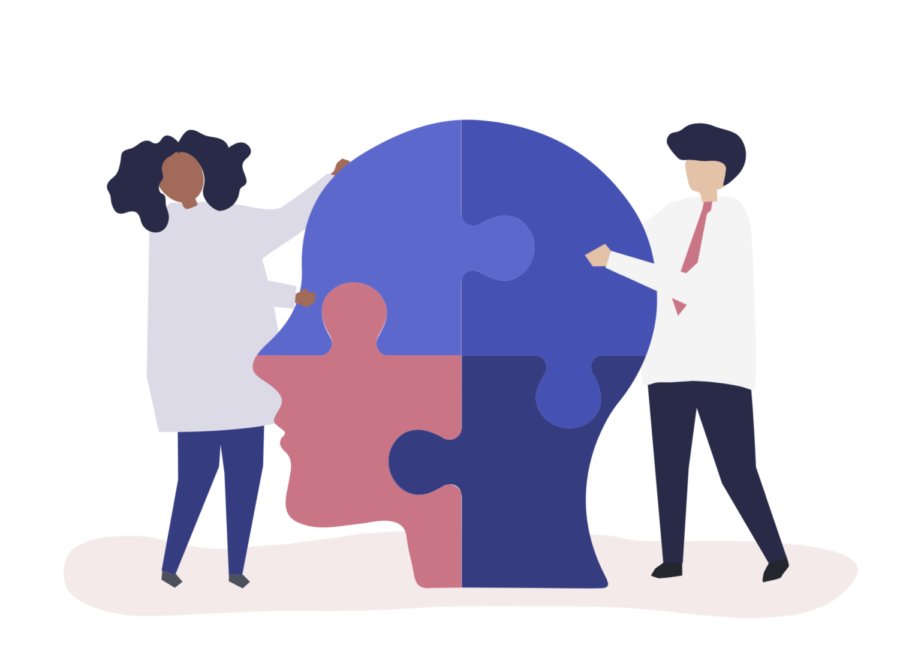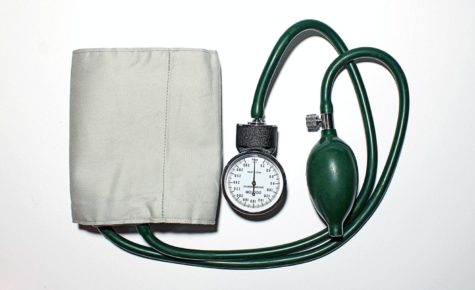Editorial: Mental health diagnosed
The ISD Editorial Board discusses the advantages and implications of receiving a mental health diagnosis, as well as its relationship with societal values.
September 23, 2020
Editor’s Note: This editorial and image was updated on Thursday, Sep. 24 to more accurately depict the argument toward disclosing diagnoses in order to promote anti-ableist language.
Receiving a diagnosis can mean the beginning of treatment for some but a long, wearing journey for others. Mental health is more than just a diagnosis.
Mental illness diagnoses are given by a health care professional after some sort of evaluation is done: physical exam, long-term monitoring, observation of symptoms, etc. These diagnoses are extremely beneficial as it helps create an “action plan” and allows an individual to learn coping mechanisms, stabilize their emotions and set goals, whether that’s through therapy, medication or both.
An example of a benefit of being diagnosed is the individual knows exactly what to research. They can look into what is recommended for treatment and read about others’ experiences to decide how they want to handle their new situation. It is helpful to become more knowledgeable about what their mental illness is. The goal, after all, is to coexist in a healthy way.
But research can be done and treatments can be tried even without that diagnosis. But, of course, this should be under the supervision of a medical professional to monitor physical health risks and emotional side effects.
Like many topics in today’s world, though, there are extreme viewpoints on the subject of mental health diagnoses.
On one end, mental health is discussed more than ever and has reached a point where all the comments on social media posts about mental illness read “I struggle with this, too.” And maybe everyone can relate in some way, but mental illness has become “trendy.”
It’s great to see people speaking honestly and openly about their mental illness and the symptoms that come with it, but a lot of it is stemming from the fear of missing out. Totally relatable, but totally counterproductive.
Mental health is still stigmatized and littered with rules. Those who have received a diagnosis — or multiple — behave as if they are entitled to talk as much as they want about their mental illness, as if their struggles are more valid than those of someone who hasn’t been diagnosed officially, even if that undiagnosed person has been in therapy for years and has tried medications aplenty.
Let’s make a point more clear: we are not saying that you should either hide or disclose your diagnosis and we are also not saying that one should suspect someone else has a mental illness. There should, however, be more honesty and sensitivity toward these issues because of the seriousness these diagnoses are toward people who have them.
People may think, “Well, why can’t you just go get diagnosed?” There are multiple reasons why someone would not go ahead with the diagnosis process.
Some therapists and their patients simply decide they can create that “action plan” without official diagnosis due to the possibility of an individual or their family bring unable to afford therapy and the diagnosis and/or medication, whatever the case. The mental health of these people is still important and valid.
Mental health is health. It is just as important, if not more, than physical health. There are times that medical professionals carry out many medical tests on a patient and they all come out negative, so they’re left with their “best guess.” We still deem that patient as sick though, so why can’t we also believe those who struggle with mental illness but haven’t gotten that “positive test result” for something either?
Now, while diagnosis isn’t everything for mental health, it can be necessary and much more helpful than harmful. It can help mental health professionals advise treatment and can show you what care is available through your health provider.
Mental health does matter. And no matter if you have a diagnosis or not, you should seek help. If not for yourself, do it for your loved ones. They want you to feel better — not perfect, but better.
Mental health resources:
-
Suicide Prevention Lifelife: 800-273-TALK or 800-SUICIDE
-
National Alliance on Mental Illness Information Line: 800-950-NAMI

















